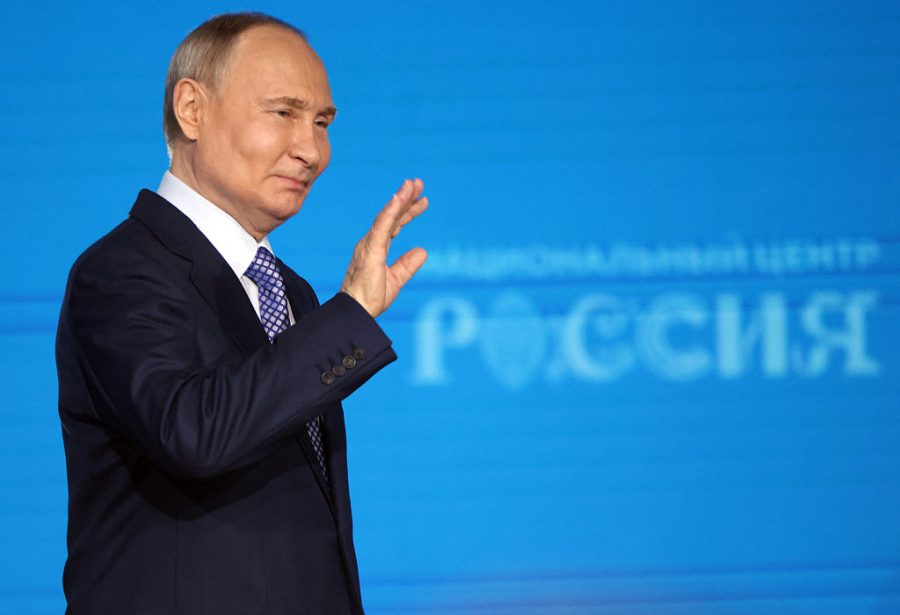The unfolding tale of incendiary devices planted in DHL packages across Europe not only highlights the dangers of Moscow’s campaign of direct measures against the West. It also suggests that, contrary to more alarmist claims, it is possible for such threats to be deterred and limited.
In July of last year, a package bound for Britain ignited in the section of Leipzig airport devoted to DHL cargo freight. Another caught fire later that month in a DHL depot in Birmingham. Two more were found in Poland, one of which set light to a warehouse in Warsaw, while the other was successfully intercepted.
After the US government’s quiet intervention, Moscow did back away
The packages were sent from Lithuania and contained incendiary devices secreted inside massage cushions to avoid easy detection. Suspicion immediately fell on the Russian intelligence services and most recently, accounts have emerged identifying one Colonel Denis Smolyaninov as behind these incendiaries. An officer of Russian military intelligence, the GU (still widely known by its old acronym, the GRU), Smolyaninov is already under EU sanctions for his role in the undeclared war in the Donbas from 2014.
The particular concern was that, as these devices were being air-freighted, had they gone off in mid-air, they could have had much more serious effects, potentially even causing mass casualty incidents. Indeed, when a cargo flight from Leipzig to Vilnius crashed on approach in November, there were initial claims that this was sabotage, something subsequently denied by the authorities.
Why bother? These initial four packages were likely being used to test the security measures in place, to see what they could and could not detect. Subsequently, entirely innocuous packages containing trainers and t-shirts were sent to the United States and Canada, for much the same purpose. By this time, though, Western security agencies were alerted to the threat, and Washington had already, through its back channels (probably between the CIA and the SVR, Russia’s Foreign Intelligence Service) warned Moscow off this operation. A decision was not made quickly enough to forestall the exploratory shipment of sportswear across the Atlantic, but the Kremlin does seem at that point to have called off the GU’s dogs.
Three preliminary conclusions can be drawn from all this. The first is that a Russian government which regards Ukraine as nothing more than a Nato proxy and thus Ukrainian assassination and sabotage attacks on its soil as mandated or at least approved by the West, believes it is responding in kind. It also hopes that a steady campaign of small-scale attacks in Europe – enough to cause inconvenience, not enough to risk triggering a Nato Article 5 response – may eventually undermine support for Kyiv.
Secondly, that in the pursuit of this hybrid or political war, Moscow is ruthlessly imaginative and imaginatively ruthless. In particular, it is turning to local proxies, especially criminals, to do its dirty work, usually for strikingly small sums of money and often without even letting them know they are doing the Kremlin’s dirty work. Sanctioning Colonel Smolyaninov is all very well, but he isn’t going to risk travelling outside Russia. Instead, he works through a network of so-called ‘operators’ who, in turn, recruit the essentially disposable assets who actually post the parcels, place the bombs and otherwise run the risks.
In a dark spin on the gig economy, operations are divided into discrete tasks, each farmed out to a different dupe who thus has no idea of their overall shape. In the case of these incendiaries, Russian agents smuggled them to Kaunas in Lithuania, where a Ukrainian living in Poland was instructed to pick them up and drive them to Vilnius. There he activated their timers and placed them in suitable DHL packaging. Then he handed them over to a Lithuanian, whose only role was to hand them over to the shipper. He had to show ID for this and was therefore easily identified after the event, but he was essentially ignorant of their contents or even the name of the man who had given them to him.
Nonetheless, what is every bit as striking is that after the US government’s quiet intervention, Moscow did back away. It could be that it simply decided this particular type of attack was not viable, but after a surge of sabotage operations in Europe in the first three quarters of 2024, there has been something of a lull (beyond cyber-attacks).
Obviously the security agencies cannot let themselves become complacent, as this simply could be a pause as new operations are prepared, and the Kremlin could just as easily spin its campaign back up. However, it does demonstrate that, despite the overheated rhetoric one hears from some quarters (‘the Russians are beasts, and one cannot reason with them,’ as one undiplomatic Polish diplomat put it during a recent closed event), there is still room for deterrence.








Comments